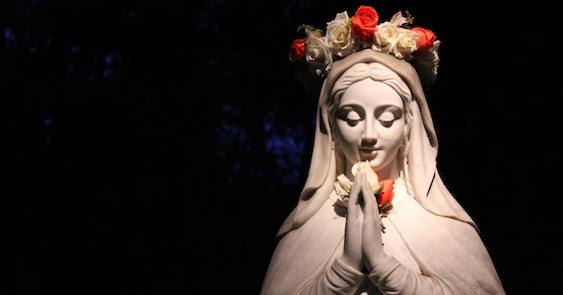
God, who is "rich in mercy", embellishes the creature with the qualities of grace. He shows himself even more generous when, by sovereign predilection, he spares from sin from the beginning of existence. This is what he did for the Mother of the Word made flesh.
"The Immaculate Conception represents the masterpiece of Christ's redemption, precisely because the power of his love and mediation preserved his Mother from original sin" (Benedict XVI, Audience, July 7, 2010).
The Church had always professed the full sanctity of Mary. The liturgy honored her birth without blemish. Christian poetry, from ancient times, admired this prerogative: "As a tender rose rises amidst sharp thorns, having nothing in itself that hurts; so holy Mary, by being born from the stump of Eve, has atoned, as a new Virgin, for the crime of the ancient virgin" (Caelius Sedulius, Easter hymn, 2, 28-31). The medieval offices would use the same image: "She was begotten like a rose without thorns" (Fulbert of Chartres, Office for the Nativity of Our Lady, antiphon).
In the West, devotion to the Immaculate Heart of Mary opened the way to the dogmatic definition issued by Blessed Pius IX (1854). In the meantime, the apparitions at the Rue du Bac (gift of the Miraculous Medal, in Paris) and at the grotto of Massabielle (Lourdes), sealed this solemn magisterium. "O Mary, conceived without sin, pray for us who have recourse to you." Finally, the litanies of Loreto (Italy) added the invocation "O Mary conceived without sin...".
Father Fernandez